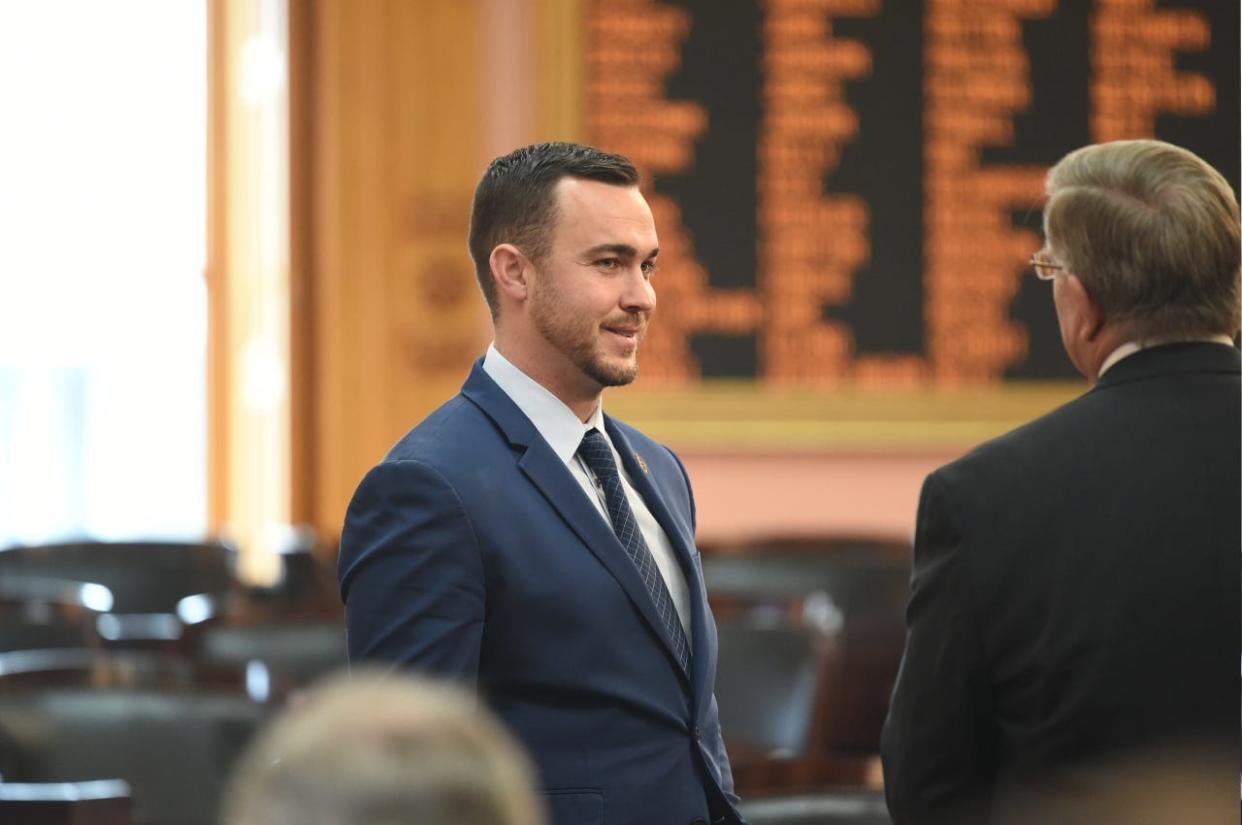Should Ohio put party labels on school board elections? Some lawmakers think so

- Oops!Something went wrong.Please try again later.
As education policy becomes more political, Ohio Republicans are debating a bill to make school board candidates declare their party affiliations.
“Partisan elections for school board members will allow voters to get a better idea of what the candidate’s platforms are,” Rep. Mike Loychik, R-Bazetta, said in a statement. “It is important that we give voters information that will allow them to make an informed decision, especially when they’re voting for those who decide our children’s educational opportunities.”
That's why he introduced House Bill 267. If passed, the legislation would require school board candidates to run in partisan primaries and then with an R or a D beside their names on the ballot in general elections.
Supporters, like Loychik and the conservative Fordham Institute, say party labels provide useful information to voters who may not know much about the people on their ballot and potentially improve participation in those races.
But opponents say school budgets shouldn't be partisan issues and changing how these elections work could make already contentious school board meetings even more so.
"Those who keep pushing for everything to be partisan seem to have no faith in our democracy or the ability of voters to figure out the right person for the job ...," Ohio State School Board Member Christina Collins said. "Education is a nonpartisan issue that we are forcing to become partisan because we have a culture and political divide."
Collins said the proposed change would keep boards from focusing on what happens in district classrooms and what works best for children.
The Ohio School Board Association also opposes HB 267 but for a different reason.
"Doing so would limit the pool of candidates in local communities," OSBA Chief Executive Kathy McFarland said. "For example, federal and state employees are prohibited from seeking partisan office."
While rare, partisan school board races aren't unheard of in the U.S. And the idea of putting party labels on candidates is growing in popularity, especially in conservative states.
Florida voters will decide in 2024 whether to require school board members to run with a political affiliation. West Virginia, Arkansas, Indiana, Kentucky and Texas' legislatures have measures similar to the one here in Ohio.
This isn't the first time Loychik has tried to take on Ohio school boards, either. He introduced a bill in the last General Assembly to shorten their terms.
More: Ohio GOP lawmaker wants to force 'reckless' school board members to run every two years
Loychik was also escorted out of a Lakeview Local School Board meeting in September 2021 after he refused to wear a mask.
HB 267 is awaiting its first hearing in the Ohio House.
Anna Staver is a reporter for the USA TODAY Network Ohio Bureau, which serves the Columbus Dispatch, Cincinnati Enquirer, Akron Beacon Journal and 18 other affiliated news organizations across Ohio.
Get more political analysis by listening to the Ohio Politics Explained podcast
This article originally appeared on The Columbus Dispatch: Ohio may require party labels on local school board races

